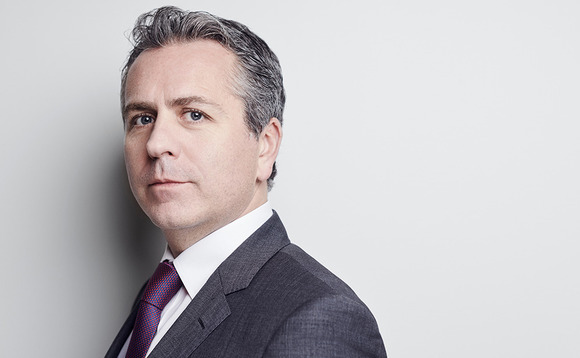
Fund Profile: Ardian Secondary Fund VIII

Head of Ardian US Benoît Verbrugghe talks to Unquote about plans to use recently raised funds to provide liquidity to investors amid the Covid-19 pandemic, and the evolution of the secondaries market
Paris-headquartered global investment firm Ardian recently closed Ardian Secondary Fund VIII (ASF VIII) on $19bn, exceeding its $18bn target. Launched in July 2018, ASF VIII is the world's largest vehicle dedicated to the secondaries market to date, taking the crown from Lexington Capital Partners IX and Ardian Secondary Fund VII, which both closed on $14bn.
The fund's capital comprises $5bn in co-investment interests and intends to provide the necessary liquidity to investors amid the Covid-19 pandemic. The vehicle is already 40% committed and called at 20%; it expects to reap 14-15% net IRR for its LPs, Unquote understands.
"We have a five-year investment period ahead of us and are not in any rush, especially because we want to have some real clarity around the full impact of the pandemic on the global economy and our portfolio companies," Benoît Verbrugghe, member of the executive committee and head of Ardian US, tells Unquote.
"The dealflow is currently experiencing a slowdown because of the Covid-19 emergency, but we expect that at the end of the year the secondary market will be very active again," he says. "We have recently had some promising discussions and plan to ink at least one new deal with our last fund in Q4 2020. We are confident that ASF VIII will continue its deployment in good conditions."
Led from London and New York, Ardian's secondaries division is part of the firm's fund-of-funds platform, with more than 70 investment professionals, managing around $56bn in assets across a portfolio of more than 1,300 funds based in Europe, North America and the Middle East.
Ardian's activity in the secondaries domain comprises both traditional secondaries – focusing on the purchase of direct stakes in mature private equity funds – and portfolios of stakes in unlisted companies. It also invests in early secondaries, acquiring immature fund stakes where less than 50% is invested.
Market evolution
Verbrugghe says the secondaries private equity market has grown exponentially over the last 20 years and Ardian has followed the market trend, noting that when the group raised its first generation of secondaries in 1999 it only targeted €220m, but since then fund sizes have substantially increased.
"We realised that secondaries were becoming extremely important, that they could represent an essential tool for the private equity market, being able to provide liquidity to any type of institution and institutional investor in the world. We also noticed that global portfolios of pension funds and sovereign funds were gaining size. As a consequence, the size of the transactions across the secondary market was increasing substantially and we wanted to be able to underwrite transactions of that size. This was a winning strategy and has given us a big advantage, given that today there aren't many other players able to fill this gap and target deals in the $1-5bn range."
Ardian is also investing its sixth generation of early secondaries funds, a $1.2bn vehicle raised in 2016. Although this fund does not target a very large market – being exclusively dedicated to less mature funds that are around 30-40% committed – there are plans to raise a seventh generation soon.
"This approach can be particularly useful for diversification purposes, allowing a small exposure to vintage while the majority of the capital is invested in proper secondaries. It is a strategy that might become even more common as a result of the pandemic," says Verbrugghe.
The solutions offered by the secondary market have multiplied in recent years, with new strategies for both underperforming portfolios and profitable assets in need of liquidity, and an uptick in GP-led transactions and fund restructurings.
"This trend will strengthen even further in the coming months," says Verbrugghe. "With the Covid-19 crisis, there will likely be more funds that struggle to protect and support their portfolios or to negotiate an extension. Their only solution for keeping and saving their assets will be to pursue a GP-led restructuring. At the same time, we also have to take into consideration that some of these transactions are more complicated and involve various assets that might be badly exposed to the crisis. That's why at this stage it is prudent to maintain a good balance between strategies and a certain degree of diversification."
Despite an increasing number of players entering the secondaries investing space, it seems buoyant and rich in opportunities, according to Verbrugghe. "We specialise in larger and more complex transactions, buying portfolios of $1-5bn. This is where the competition is lower, execution risks are greater and returns tend to be higher, but the entire market across all segments can offer excellent deals.
"The key benefit of investing in secondaries is the ability for an investor to deploy cash more rapidly, while building a good level of diversification as well. This strategy has become complementary to any private equity investment programme aimed at managing actively and effectively a portfolio, especially when looking for liquidity, or planning to crystallise a performance or rebalance a portfolio. In the current climate, the secondary market will have an even more crucial role in providing institutional investors with liquidity."
Latest News
Stonehage Fleming raises USD 130m for largest fund to date, eyes 2024 programme
Sponsor acquired the public software group in July 2017 via the same-year vintage Partners Group Global Value 2017
Stonehage Fleming raises USD 130m for largest fund to date, eyes 2024 programme
Czech Republic-headquartered family office is targeting DACH and CEE region deals
Stonehage Fleming raises USD 130m for largest fund to date, eyes 2024 programme
Ex-Rocket Internet leader Bettina Curtze joins Swiss VC firm as partner and CFO
Stonehage Fleming raises USD 130m for largest fund to date, eyes 2024 programme
Estonia-registered VC could bolster LP base with fresh capital from funds-of-funds or pension funds









